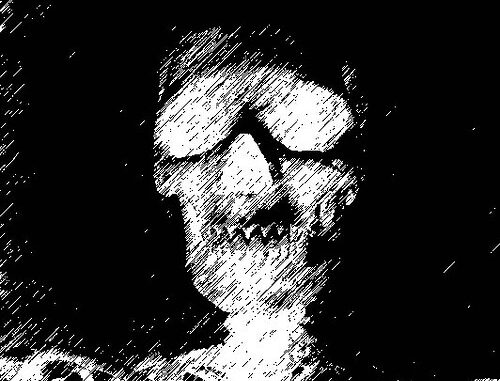
What is ontologically evil?
Ontology is the branch of philosophy that studies the existence of being, reality, becoming, etc.; metaphysics is the branch of metaphysics that studies the very nature of reality, what makes up reality. So ontologically evil means the absolute evil, the deity, which is evil by existence and is born to be evil. It also refers to an act that has a pure evil intention and no reason; no benefit of doubt can be given. Nowadays, it refers to an act of politics or a person that is destructive and terrible, and people usually call it ontologically evil. For example, the forceful captivation and ethnic cleansing of Palestinians by Israel are referred to as ontological evil.
The confusion in understanding the origin and meaning of this word can cause many adversaries. Ascribing ontological evil can give rise to binary views and intolerance, where the destruction of evil would be the only way to resolve the issue.
Let’s understand the use of this term in a histological context.
In the 20th century, Hitler was known as ontological evil due to his malevolent actions and brutality. In some regions, Genghis Khan is also referred to by the same term.
In the book Lord of the Rings, Sauron and Morgoth are also referred to as ontological evils due to their battle against the heroes of the story.
Proving the Existence of Ontologically Evil.
From Aristotle to now, the philosopher is in turmoil over defining evil. Understanding evil is indeed complex, and the extreme view also exists, which denies the existence of evil in the first place. I am not talking about the ontologically evil, but the evil and immoral.
This wing views everything as gray without the correct discipline of evil and virtue. It gives rise to strife and debate.
The greatest trick the devil ever pulled was convincing the world He doesn’t exist.
From the movie, the usual suspects.
Evil exists, and in everyone, humans have a dark side, even the saints. The goal is to conquer the evil side and not let our dark side control our lives.
So what is evil, and where did it come from? It is a common query in metaphysics, and I think we need epistemological knowledge to understand it.
Epistemology is simply a theory of knowledge that helps us understand how we know things. There are three ways of knowing anything.
- Reasoning
- Intuition
- Active Contruction
I will write a separate, dedicated blog for understanding epistemology.
According to Christianity, the devil, an ontologically evil entity, is a fallen angel who dares to question God and was thrown out of heaven. In Christianity, it represents malevolence, wickedness, and mutiny against God. Satan is the one who made humans commit sin.
He is an ontological evil, leading humans down a straight path.
In Islam, the devil is known as iblis, a jinn who rebelled against God when he was asked to prostrate before Adam, the very first human. He was made with fire, and humans were made from mud. He refused and suffered from vain and overwhelming pride.
Allah hates being proud and boastful; he is showing all the characteristics that rebel against him. Then Allah threw him on earth; meanwhile, he asked Allah to grant him time till the day of resurrection so that he would spread discord and lead the children of Adam astray. As a form of revenge and hatred he has against humanity. Allah describes Iblis as humans open and biggest enemy, who wants humans to go to hell along with him. Aloha has warned us against the presence of Satan and to not befriend him; otherwise, we would end up in hell just like him.
In Islam, he is definitely an ontological entity, a jinn that leads humans astray to prevent them from worshipping the true, omnipotent Allah. Muslims believed in the devil’s existence and held him responsible for all the evil in the world.
That is the case with all the Abrahamic religions, which assume Satan as the core and pure evil; without the slightest hint of righteousness, he can do no virtue.
In Judaism, this concept is different from Christianity and Islam; there is no ontological evil in Judaism; in fact, there is metaphorically evil. Yetzer Hara, which is the evil inclination present in all human beings, is a dark side of human beings that causes us to sin. The version of the devil exists in every human, and it’s our duty to conquer our dark side. and not let it control us. They believed God has given us free will, and it’s our duty to choose virtue over sin; if we don’t, we will be punished by hellfire.
The reason why the concept of evil in Judaism is different is because it is the oldest of all three religions, dating back nearly 1st millennium BCE.
I am presenting religious evidence to prove the presence of ontological evil.
Faith and the ancient holy book give us some account of the truth, because the resources through which we attained history are very vague.
Irenaean theodicy, the soul-making theodicy
Irenaeus is the 2nd century theologian and philosopher. If we look at his philosophy, if he gave some account of the existence of evil and defended it with argument, as he was a Christian theologian, his philosophy would support Christian morals and beliefs.
He claimed that evil is necessary in order to appreciate virtue. God made humans imperfect, gave them free will to choose between right and wrong, and gave us trials so that we could choose right through our own free will. Without the presence of evil, you cannot appreciate good; the existence of evil is necessary on the path to moral perfection. And this evil is known as the devil or Satan, an evil entity.
Also in the Quran, Allah said
And we shall make a trial of you with evil and with good. And to us, you will be returned.
al-Anbiya 21:35
The Dark side of Human being.
Like plants, men also grow some in the light and others in the shadow. There are many things that need the shadow, not the light.
Carl Jung, the red book.

None of us is as good as we like to think. We possess animalistic desires for sex, power, and money. We all have cruel and aggressive sites that can do more harm, and we tend to deny our weaknesses and shortcomings, but what we deny doesn’t disappear; it sinks into our unconscious and congregates in what Jung called the shadow.
In this blog, we are going to explore how confronting the shadow and integrating its elements into our personalities is a means of rejuvenating our lives and healing a divided world.
Only a man who goes through darkness can hope to make any further progress.
Carl Jung, yoga, and the West.
For a show to be cast, an object must impede a path of light. The object that casts our psychological shadow is our persona.
Persona is the Latin word signifying the mask worn by an actor on stage. In Jungian psychology, the persona represents the metaphorical mask we wear in social situations.
A kind of mask, designed on the one hand to make a definite impression on others and on the other to conceal the true nature of the individual,.
Carl Jung, Two Essays on Analytical Psychology.
The construction of our persona begins early in life as we learn which elements of our persona and, in the process, hide unwanted character traits not only from others but also from ourselves. These character traits are repressed and congregate in the unconscious to form the shadow.
The shadow is the inferior part of the personality; it is the it is the sum of all . . . . . psychic elements. Which, because of their incompatibility with the chosen conscious attitude of the persona, are denied expression in life and therefore coalesce into a relatively autonomous splinter personality, with contrary tendencies in the unconcious
Carl Jung, Memories, Dreams, and Reflections.
The repressed contents of our shadow don’t lie dormant in the unconscious, never to be heard from again. Rather, they operate in an autonomous manner, behind the spotlight of conscious awareness. The way the shadow manifests itself is through projection, wherein we perceive in other individuals, groups, nations, races, or political parties the weaknesses, faults, and evils that reside within ourselves, or as Jung says it.
We still attribute to the other fellow all the evil and inferior qualities that we do not like to recognize in ourselves and therefore have to criticize and attack him, when all that has happened is that an inferior soul has emigrated from one person to another.
The world is still full of scapegoats, just as it formerly teemed with witches and werewolves.
Carl Jung, Civilization in Transition.
Elements of our shadow also find expression in our day-to-day lives through our moods. and behaviors. For the character traits, instincts, and desires that we repress fester in the unconscious, creating a tension between our conscious personality and the autonomous splinter personality of the shadow, At times of stress or conflict, when our conscious mind is unable to keep the doors of the unconscious closed, the shadow reveals itself, often with damaging consequences.
There are patients who boast that for them the shadow side doesn’t exist; they assure us that they have no conflict, but they do not see that other things of unknown origin cumber their path: hysterical moods, underhand tricks that they play on themselves and their neighbors, a nervousness of the stomach, pains in various places, irritability for no reason, and a whole host of nervous symptoms.
Carl Jung’s Two Essays on Analytical Psychology
Rather than denying the shadow, we are far better served by shining a light on this dark side of our character. Confronting the shadow begins with accepting its existence and realizing that the personality we portray to the world and our conscious sense of self don’t represent us in totality.
Once accepted, honest self-reflection and self-criticism can reveal some of the traits we have been hiding from. Not all the contents of our shadow can be confronted by turning within, as some elements of our character have been pushed too far into the depths of the unconscious. To unearth these elements, we can use a few different tactics.
Firstly, we should take notice of any traits in other people that trigger a particularly strong emotional reaction, as this is a sign that the same trait lies within us.
Another tactic is to peer into the shadow of someone close to us—a task that is typically easier than peering into our own, for although some aspects of the shadow are personal, much of what gets deposited there is influenced by social and cultural trends and is shared among members of our society.
A character trait we reject has likely been rejected by a sibling or close friend. If we can learn about their shadow, clues about our own will be revealed.
I have come to the conclusion that the most individual thing about man is surely his consciousness, but that his shadow is far less individualized, the reason being that a man is distinguished from his fellows more by his virtues than by his negative qualities.
Carl Jung’s Fundamental Questions of Psychotherapy.
One of the many benefits of gaining greater knowledge of our dark side is that it creates a contrast that allows the good of our character to stand out in greater prominence. Or, as Jung writes, when we confront the shadow, we suddenly see both sides and become aware not only of moral inferiorities but also, automatically, of our good qualities.
In the shadow, we also discover instinctual drives for aggression, power, and sex that contain an immense amount of energy. By becoming aware of these drives and sublimating them, that is, putting them in the service of higher ends, these drives can empower us, motivate us to take the needed risks for a fulfilling life, and even sour our creativity.
The shadow contains more than just animalistic instincts and flaws; it is a home to the strength of our character, which we repressed as a result of a poor upbringing or adapting to a sick society.
Some people, for example, deny their intelligence, creativity, resoluteness, or ability to act in defiance of corrupt authority figures.
To harness the positive side of our shadow requires more than merely observing what resides in its depths. We should consciously integrate the elements of our shadow into our character and allow their expression in our day-to-day lives, or, as Jung’s renowned student Erich Neumann wrote,.
Reconnecting with the positive side of our shadow, minimizing the effects of its negative side, and integrating it all into our conscious sense of self produces a character that tends towards the idea of wholeness.

Leave a Reply